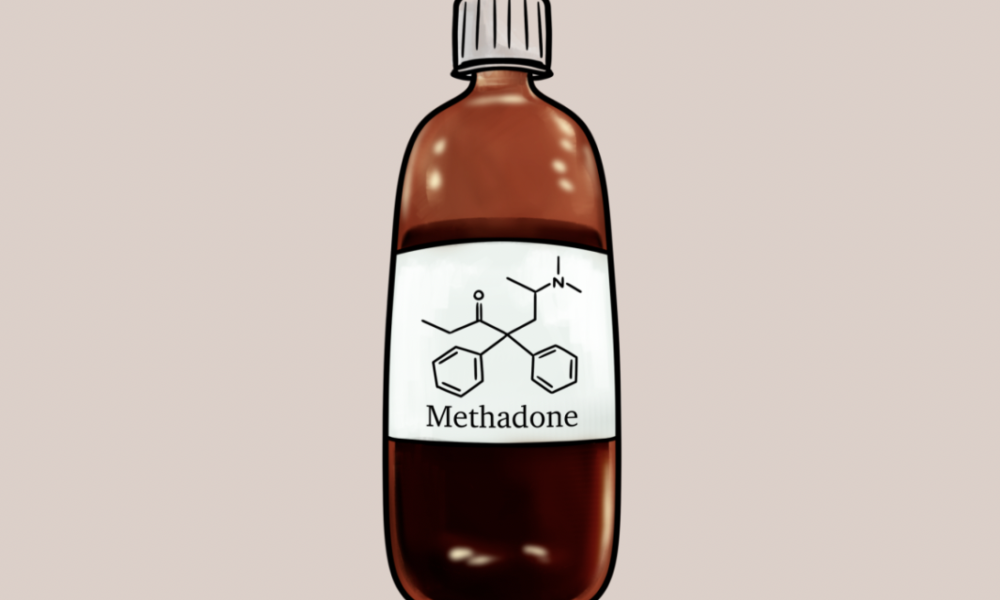Following the onset of the COVID-19 pandemic, Québec’s rate of overdoses and opioid addiction skyrocketed. With a record number of overdoses in 2023 and rising concerns around addiction and drug use in Montreal, the search for a solution to this epidemic has become increasingly urgent. Replacing one addiction with another may, on the surface, sound like a questionable idea, yet it is one that some doctors in Montréal swear by.
Methadone is a long-acting opioid prescribed to treat severe addictions to more harmful opioids, like fentanyl. Typically, the drug is taken over the span of a few years and then gradually reduced until the individual is no longer dependent. The difference between methadone and other opioids is that it is long-acting, preventing the user from needing multiple doses throughout the day, and devoid of the same euphoric effects as other opioids, like heroin.
As a result, people who use methadone are more functional in their day-to-day lives and have a better chance at building support systems, seeking out professional help, and solving issues often associated with addiction, like financial troubles. This approach directly counters the moralistic view that addiction is a choice or a lack of willpower; instead, it treats addiction like a disease that requires evidence-based treatment. And so far, it has been tremendously effective.
There is an ocean of research about the benefits and safety of methadone, including one study by the National Institute of Health, which found that methadone-based treatment reduced the risk of opioid-related deaths by nearly 60 per cent. Still, many doctors refuse to prescribe the drug out of fear that it perpetuates addiction. The problem with this approach is that, though recovery from addiction should always be the ultimate goal, it cannot and should not be the only goal.
People don’t deserve to die simply because they remain addicted to opioids. Focusing exclusively on ending drug use oversimplifies the complex needs of individuals struggling with addiction solely to stopping drug use and neglects the crucial responsibility to safeguard those who continue to use drugs. Preventing overdoses must be the top priority for healthcare professionals, for which methadone has proved time and time again to be an imperative tool.
Robert Thivierge was one of the few physicians in Montreal who prescribed the drug before closing his practice in August 2023. He reports that many patients will be left helpless without access to a methadone prescription, vulnerable to relapsing and unable to find another doctor because of the stigma around addiction. Similar regressive policies have impacted McGill as well, such as the Québec Health Ministry’s recent decision to shut down the McGill University Health Centre’s day addiction program. The purpose of the program was to support patients transitioning from in-patient rehabilitation in hospitals and addiction centres—including patients who failed to complete their rehabilitation programs— to outpatient treatment, which is less costly to the healthcare system in both time and money.
With the province’s surge in opioid-related deaths, it is more important than ever to explore concrete solutions. A solution to Montreal’s opioid crisis is within reach. Methadone has the potential to save hundreds of lives, but stigma undermines its effectiveness. A paradigm shift is urgently needed—one that prioritizes harm reduction alongside recovery, rejects moralistic views of addiction, and ensures access to evidence-based treatments like methadone. With lives at stake and the opioid crisis worsening, it’s time for decisive action and compassionate policy to pave the way forward for Montreal’s path to recovery.







